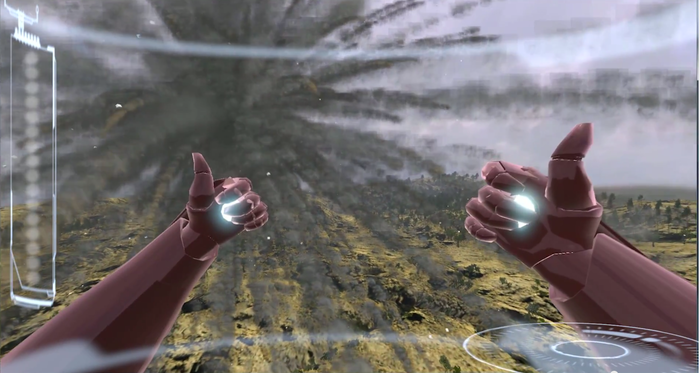
In today’s virtual-obsessed society, meeting someone for the first time is much more likely to be via email, LinkedIn or whatever social media is de rigueur this month. So it makes sense that the VR and AR tech that’s set to wow us over the next few months and years is funding itself virtually.
One of the most recent virtual tech start-ups to kickstart into action is Control VR. Successfully funded on 5 July, after setting a goal of $250,000 on 5 June, the LA-based Control VR team raised $442,227 thanks to 1,161 backers, with notable investors including the LA Times, International Business Times, Forbes and engadget. With an optimistic delivery date of December of this year for the first 500 backers, Control VR hopes to take Oculus Rift to the next level by adding motion capture of hand and finger movement with an open source wearable gesture controller ‘to inspire creativity, learning and invention with virtual reality’ – a noble goal, you might say! Indeed, this LA-style generosity apparently extends to ‘building a brighter tomorrow’ by ‘changing the world’… No pressure then!
But while this might be too utopian for the majority of us, Control VR certainly looks the part – if the reviews and videos available online are anything to go by anyway. A $350 pledge bagged backers a one-arm Control VR system with a seven-sensor glove, plus a one-sensor chest piece and an arm sensor – as well as 20 app demos and the Control VR open-source SDK – with a $600 pledge guaranteeing a two-arm system.
While gaming – as a control interface for Oculus Rift – is the most obvious practical use (micro-sensors detect small changes in inertial track arms, hands and fingers), some have pointed out the potential benefits for virtual offices, with the system’s gloves operating a virtual keyboard, doing away with the need for hardware. And if this all sounds a bit Minority Report (oh no, not again!), you won’t be the first, or the last, to make that comparison. Let’s hope that the 20 years of development the Control VR team invested ultimately gives us the ‘truly immersive’ experience they’re promising. And if it changes the world for the better, you won’t see me complaining.
More AR than VR, another tech seeking virtual funding to ensure its actual success is Voxiebox, touted as the ‘world’s first holographic gaming system’ and widely reported as a Star Wars-esque, ‘let the Wookie win’, gaming solution. The brains behind the system, NYC-based Sean Kean, co-founder of VOXON, also seems keen on changing the world, if his LinkedIn page is to be believed (“I aim to make the world a better place”) – so clearly this utopian ideal isn’t exclusive to the western seaboard. You can donate to the company’s cause at its modest Voxibox website (using Bitcoins or any major credit card).
Under development for more than five years, Voxiebox uses ‘custom voxel-based display hardware’ and a ‘volumetric graphics processor’ to generate points of light within a volume of space to create a ‘holographic experience in 360º without the need for goggles or 3D glasses’. Again, you can get a feel for the technology by checking out the videos online, although it doesn’t translate to vid as well as Control VR. Claimed to be the first volumetric entertainment system, Voxiebox uses a projector to shine a 2D image up to the viewing screen, creating a 3D effect by vibrating the screen up and down at a rate of 20Hz. Interestingly the shimmering effect is not unlike that visualised in the Dejarik chess game played by R2, Threepio and Chewie – although resolution is low, apparently due to the fact that Voxiebox is still in its development stages.
While gaming is, again, the most obvious final destination for Voxiebox, some have suggested that motion sensors could widen its uses, as well as adding to its gaming skillsets, of course. (Indeed Sean Kean told me: “There is a strong interest in applying the technology for education.”) With Kickstarter-backed Oculus Rift-friendly devices setting out to bridge physical and virtual worlds (another, CastAR, hit $1million from a $400,000 goal last November) the VOXON team could do worse than add VR to their AR – and maybe look to change the world at the same time!
Rob Lane is owner/director of PR/marketing agency Bigger Boat PR Ltd







